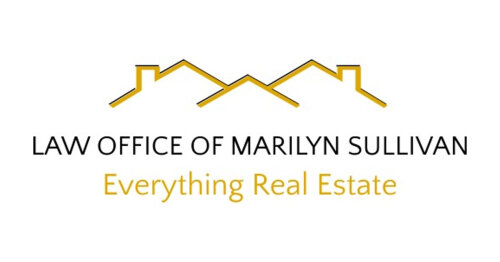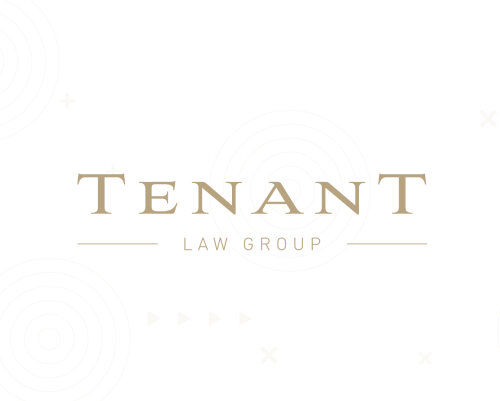Best Commercial Real Estate Lawyers in California
Share your needs with us, get contacted by law firms.
Free. Takes 2 min.
Free Guide to Hiring a Real Estate Lawyer
Or refine your search by selecting a city:
List of the best lawyers in California, United States
About Commercial Real Estate Law in California, United States
Commercial Real Estate (CRE) law in California governs the purchase, sale, leasing, use, and development of property used for business purposes. This includes office buildings, retail stores, warehouses, industrial properties, apartment complexes, and land that is meant for commercial use. The legal framework is complex due to the high value of commercial properties, diverse transaction types, and the variety of federal, state, and local laws that apply. California's significant economy and rapidly changing property markets make it critical for participants to be informed about their legal rights and obligations.
Why You May Need a Lawyer
Engaging a lawyer who specializes in commercial real estate is helpful in many situations, such as:
- Drafting or reviewing commercial leases and purchase agreements
- Negotiating favorable terms in transactions and resolving contract disputes
- Conducting due diligence, including title reviews and investigations into zoning, environmental, and permit issues
- Handling issues related to property financing and mortgages
- Managing landlord-tenant relationships and resolving eviction matters
- Navigating land use, zoning, and development regulations in California
- Addressing construction defects, liens, and contractor disputes
- Assisting with property tax concerns and compliance with disclosure requirements
- Representing clients in litigation related to property boundaries, easements, or breach of contracts
- Helping foreign or out-of-state buyers understand local practice and compliance needs
Having legal support ensures transactions are completed smoothly, risks are reduced, and your interests are protected.
Local Laws Overview
Commercial real estate in California is subject to a unique mix of state laws, local ordinances, and federal regulations. Key areas to be aware of include:
- Zoning and Land Use: Local city and county governments control property zoning and use restrictions, which determine what activities are permissible on specific parcels.
- Disclosure Requirements: California law mandates extensive disclosures regarding environmental hazards, seismic activity, and other property conditions.
- Broker and Agent Licensing: All parties involved in CRE transactions must meet California Department of Real Estate requirements.
- Contracts and Leases: Commercial leases in California are not subject to the same consumer protections as residential leases, giving more weight to negotiated contract terms.
- Proposition 13 and Property Taxes: CRE transactions often trigger taxable events, with tax assessment procedures guided by Proposition 13 and subsequent reforms.
- Environmental Regulations: Developers and buyers must comply with CEQA (California Environmental Quality Act) and other environmental laws.
- Construction, Safety, and Accessibility: Building codes, Americans with Disabilities Act standards, seismic retrofitting, and fire safety rules apply to commercial buildings.
Frequently Asked Questions
What counts as commercial real estate in California?
Commercial real estate includes any property used for business purposes, such as offices, retail stores, shopping centers, manufacturing sites, warehouses, hotels, and apartment complexes with more than four units.
How are commercial leases different from residential leases?
Commercial leases are generally negotiable and are not subject to many of the statutory protections provided to residential tenants. The terms are usually more complex and may impose greater liability on tenants.
What disclosures are required when selling commercial property in California?
Sellers must disclose known material facts affecting the property, including environmental hazards, seismic risks, zoning, and any conditions that could affect value or use. Specific forms may be required based on property type.
Can a commercial landlord evict a tenant easily in California?
Evictions are possible if a tenant breaches lease terms, but landlords must follow legal procedures, including proper notice and court action if the tenant does not vacate voluntarily.
What should I look out for in a commercial lease agreement?
Pay attention to rent calculation, renewal terms, maintenance responsibilities, CAM (Common Area Maintenance) charges, subletting rights, default provisions, and any personal guarantees required.
Do I need environmental due diligence before buying a commercial property?
Yes, environmental assessments such as Phase I and Phase II Environmental Site Assessments help protect buyers from liability and uncover potential contamination issues.
What is CEQA and how does it affect commercial development?
The California Environmental Quality Act (CEQA) requires review of potential environmental impacts for many developments, often mandating environmental studies and potentially mitigation measures.
How do property taxes work for commercial real estate?
Commercial properties are assessed at fair market value when there is a change in ownership or new construction. Proposition 13 generally limits annual increases, but reassessment occurs after qualifying transfers or improvements.
Can I make changes to a commercial building after buying it?
Modifications often require city or county permits, review under local zoning laws, and compliance with safety, ADA, and environmental regulations.
What happens if a commercial real estate deal falls through?
Parties may be liable under breach of contract theories, and disputes often concern deposit return, specific performance, or damages. Legal review of contract contingencies and timelines is crucial.
Additional Resources
- California Department of Real Estate (DRE): Regulates licensees and provides extensive guidance on property transactions.
- California State Bar Association: Offers a lawyer referral service and public resources for understanding real estate laws.
- Local County Recorder's Office: Source for property records, deeds, and document filings.
- California Secretary of State: Information on business entity registration and related property filings.
- California Environmental Protection Agency (CalEPA): Information on environmental regulations affecting commercial properties.
- City and County Building and Planning Departments: Local information about zoning, permits, and development requirements.
Next Steps
If you need legal assistance in California commercial real estate, consider the following steps:
- Identify the specific issue or transaction goal, whether it is leasing, purchase, development, dispute resolution, or compliance.
- Gather all relevant documents, including contracts, property disclosures, correspondence, title reports, and government notices.
- Consult with a California real estate attorney who has experience in the specific area of commercial real estate that pertains to your needs.
- Ask questions about the attorney’s experience and familiarity with local laws and ordinances.
- Be prepared to discuss your business objectives, timelines, and budgets with your legal advisor.
- Stay proactive in communicating with all parties involved and following through on legal or regulatory requirements.
Seeking professional legal advice early can help ensure your commercial real estate interests are protected and your transactions proceed smoothly in California.
Lawzana helps you find the best lawyers and law firms in California through a curated and pre-screened list of qualified legal professionals. Our platform offers rankings and detailed profiles of attorneys and law firms, allowing you to compare based on practice areas, including Commercial Real Estate, experience, and client feedback.
Each profile includes a description of the firm's areas of practice, client reviews, team members and partners, year of establishment, spoken languages, office locations, contact information, social media presence, and any published articles or resources. Most firms on our platform speak English and are experienced in both local and international legal matters.
Get a quote from top-rated law firms in California, United States — quickly, securely, and without unnecessary hassle.
Disclaimer:
The information provided on this page is for general informational purposes only and does not constitute legal advice. While we strive to ensure the accuracy and relevance of the content, legal information may change over time, and interpretations of the law can vary. You should always consult with a qualified legal professional for advice specific to your situation.
We disclaim all liability for actions taken or not taken based on the content of this page. If you believe any information is incorrect or outdated, please contact us, and we will review and update it where appropriate.
Browse commercial real estate law firms by city in California
Refine your search by selecting a city.















